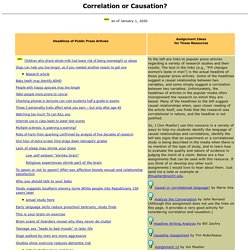

USA TODAY: Latest World and US News - USATODAY.com. Spinner Cube - A Revolution In Fidgeting by spinnercube. The Spinner Cube is a stress relief and focus tool for ages young and old that will satisfy all your fidgeting habits.

The ultimate all-in-one fidget toy with the ability to spin indefinitely is here. The Spinner Cube comes equipped with a high quality clickable joystick, a classic gamer trigger, five clickable buttons (four make noise, one is silent), three rolling metal balls and two precision bearings with spiral grooved caps. With the flick of a finger the Spinner Cube spins up to 60 seconds* but when shaken softly, it can spin indefinitely and provide an arm strengthening workout.
*Spin time will vary depending on spin force. Both bearing sides of the cube include a spiral grooved bearing cap to increase grip strength and tactile comfort. Moodle. Right brain versus left brain learning has been a longstanding debate among science theories around learning styles.
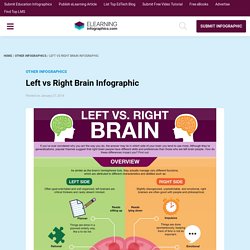
Yet, the bottom line is that different parts of our brains take on different functions and tasks to help us learn. Developing exercises that target these areas can improve comprehension, retention and efficiency in learning new subjects. The Left vs Right Brain Infographic is a visualization of brain preferences and learning styles with hints on developing both sides of the brain. Copy code The code has been copied to clipboard! Right brain versus left brain learning has been a longstanding debate among science theories around learning styles. Cell Phones Make Drivers as Bad as Drunks. A study in which both the participants and the scientists got sloshed has shown that motorists who talk on cell phones while driving are as impaired as drunk drivers.

The scientists did their drinking during a pilot to the main study, which involved 40 volunteers. By participating, the researchers gained insight to what makes people think they can drive safely while using a cell phone or when drunk. They're now advocating for laws to address the growing problem. An unexpected finding: While some of the participants crashed in a virtual vehicle while sober and chatting, none of them crashed while drunk. The study supports previous research that has revealed the risks of using cell phones and also hands-free cell phones behind the wheel. "We found that people are as impaired when they drive and talk on a cell phone as they are when they drive intoxicated at the legal blood-alcohol limit," said Frank Drews, an assistant professor of psychology at the University of Utah.
Drink for science. Eu.usatoday. It is a conundrum that has puzzled mankind since at least Plato and Aristotle.

Why do so many creative people throughout history — so many great artists and geniuses such as Robin Williams — seem to be touched by what the ancient Greek thinkers called "divine madness"? And which came first for those graced by this "gift from the gods" — the genius or the madness? Twenty-four centuries later, we are still puzzling, reminded once again of the seeming link between creativity and mental illnesses by the shocking suicide of Williams this week in his California home.
He was 63, had long battled substance abuse and had recently sought treatment for depression. Pretty Food Really Does Taste Better—It's Science - Reviewed Ovens & Ranges. Your mother was right to tell you not to play with your food, unless of course you’re styling it as an ode to Russian abstract painter Wassily Kandinsky.
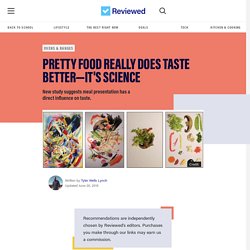
In that case, you’re likely to enjoy the meal even more. Seriously. For centuries, chefs and culinary experts have been steadfast in their belief that artfully arranging food on the plate enhances the eating experience. Fact or Fiction?: Babies Exposed to Classical Music End Up Smarter. The phrase "Mozart Effect" conjures an image of a pregnant woman who, sporting headphones over her belly, is convinced that playing classical music to her unborn child will improve the tyke's intelligence.
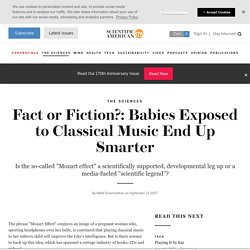
But is there science to back up this idea, which has spawned a cottage industry of books, CDs and videos? A short paper published in Nature in 1993 unwittingly introduced the supposed Mozart effect to the masses. Psychologist Frances Rauscher's study involved 36 college kids who listened to either 10 minutes of a Mozart sonata in D-major, a relaxation track or silence before performing several spatial reasoning tasks. Taste areas on tongue. NPR Choice page. How a party drug could become the next big antidepression treatment. NPR Choice page.
Not awful and boring ideas for teaching statistics: Pew Research's "Growing Ideological Consistency" This interactive tool from Pew research illustrates left and right skew as well as median and longitudinal data.
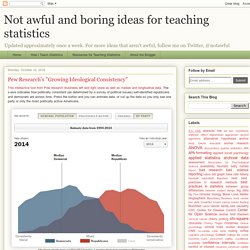
The x-axis indicates how politically consistent (as determined by a survey of political issues) self-identified republicans and democrats are across time. Press the button and you can animate data, or cut up the data so you only see one party or only the most politically active Americans. The data for both political part goes from being normally distributed in 1994 to skewed by 2014. Correlation or Causation. Children who drank whole milk had lower risk of being overweight or obese Dogs can help you live longer, as if you needed another reason to get one Research article Baby teeth may identify ADHD People with happy spouses may live longer Taller people more prone to cancer Checking phones in lectures can cost students half a grade in exams These 3 personality traits affect what you earn -- but only after age 40 Watching too much TV can KILL you Internet use in class leads to lower test scores.
